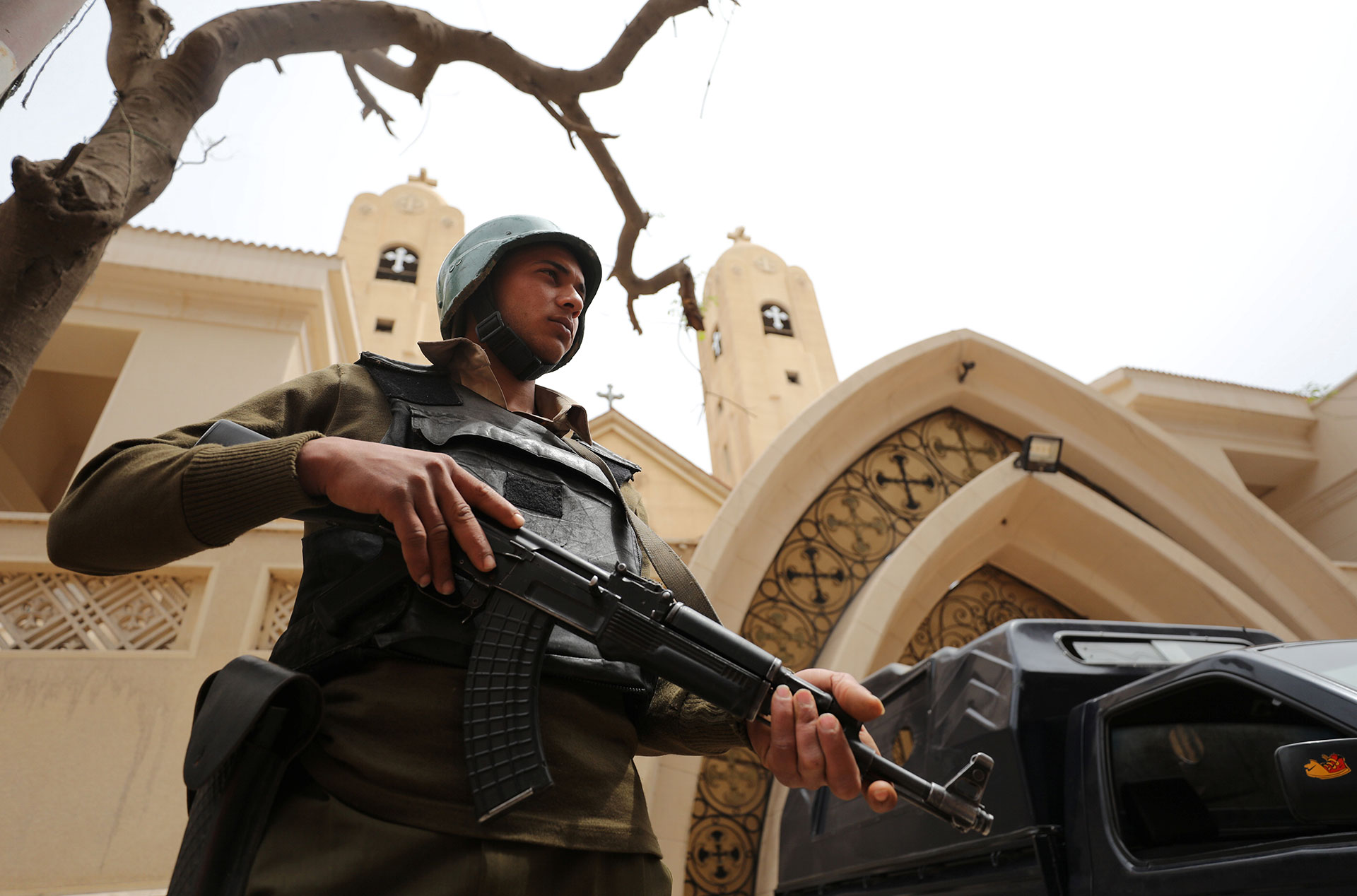
Egypt Declares its Success in Dismantling Islamist Militancy
Egypt Declares its Success in Dismantling Islamist Militancy
Eleven militants were killed by Egyptian security forces on October 24 in the latest of a series of preemptive attacks. The raid took place at a mountainous hideout located in the desert adjacent to Asyut province, 200 miles from Cairo (Al-Ahram, October 25). Five days earlier, police exchanged fire with nine other militants and killed them on the spot. Searching the cave where they were hiding in the same province, police found and confiscated automatic rifles and explosive charges that were potentially intended for use in would-be terrorist attacks (Al-Masry Al-Youm, October 10).
The police raids are part of coordinated efforts with the military forces, aimed at intensifying counter-terror operations against Islamist militants across the country. According to Egypt’s military spokesperson, Tamer al-Refai, “The Sinai 2018 Operation (which began in February 2018) has resulted in dismantling, to a great extent, the infrastructure of militants.” Al-Refai further stated, “Since embarking on the comprehensive campaign, the military killed 450 militants, foiled 1,200 explosive charges, and destroyed 900 vehicles used by militants. Also, the military arrested 4,000 militants and demolished 3,000 tunnels on the Egyptian borders” (Sky News Arabia, October 25).
Since the launch of the Sinai 2018 Operation, there has been a remarkable decline in terrorist operations in Egypt’s mainland. A year ago, militants were targeting the mainland to compensate for their strategic loses in Sinai. The only reported attack this year was an unclaimed and failed attempt to assassinate Alexandria’s security chief—Major General Mostafa al-Nemr—which left two dead and five others injured (Al-Ahram, March, 24). While the overall reduction in violence bodes well, the incidence of intermittent and underreported attacks in the Western Desert remains a concern.
Egypt has been hit by terrorist attacks in an unprecedented frequency since 2013, when then-Defense Minister and current President Abdel-Fattah El Sisi overthrew Muslim Brotherhood-affiliated President Mohamed Morsi and asked for a popular mandate to fight terrorism. This marked the declaration of the “war on terror” that has lasted five years. Between the end of 2013 and September 2017, 1,343 attacks were carried out across Egypt. These attacks were carried out by several groups, including Ansar Bayt al-Maqdis (ABM) in North Sinai, which pledged its allegiance to Islamic State (IS) in 2014 and rebranded itself as Wilayat Sinai; the Popular Resistance Movement and Revolutionary Punishment that emerged in December 2014; Hassm; and Liwaa al-Thawra (TIMEP, July 24).
Wilayat Sinai alone claimed responsibility for 903 attacks that killed over 588 security personnel and 329 civilians. As of 2017, militant operations decreased to 110 terrorist attacks, thanks to the security forces’ counter-terrorism operations, which included arresting 200 militants affiliated with Hassm. Meanwhile, security forces killed 180 militants, and IS’s regional defeat and decline in 2017 has weakened its most deadly franchise in North Sinai (Al-Watan, February 12).
Regionally, the Egyptian coordination with Libyan National Army (LNA) forces operating in the Eastern part of Libya—adjacent to Egyptian-Libyan borders—has resulted in a further crackdown on militants who carried out deadly attacks in Egypt’s Western Desert. On October 8, the LNA captured Egypt’s most wanted militant and ex-military officer, Hisham Ashmawy, the leader of al-Qaeda-inspired group Al-Mourabitoun. Ashmawy was arrested alive in Derna, 165 miles west of Libya’s border with Egypt. Ashmawy is likely to be handed to Egyptian authorities to be tried for at least 17 deadly attacks he carried out in Cairo and the Western Desert (Al-Masry Al-Youm, October 8).
Capturing Ashmawy is likely to lead to important information about the whole network of Islamist militants and micro-terrorist cells in Egypt and North Africa, given the experience of Egyptian security apparatus in extracting confessions and gathering intelligence data. (Al-Ahram Center for Political & Strategic Studies, October 21).
Statistics indicate that terrorism in Egypt declined remarkably, thanks to several factors which include the following:
- Targeting militant strongholds in Sinai and the mainland of Egypt.
- Confiscating funds of terrorist For instance, on September 11, Egypt’s Committee for Inventory, Seizure, and Management of Terrorist Funds announced that it had seized assets belonging to 1,589 Muslim Brotherhood supporters (Al-Watan, Sept 11)
- Monitoring and controlling Egypt’s vast borders where militants smuggle weapons from overseas.
- Egyptian security forces’ preemptive attacks that killed and led to the arrest of a large number of high-profile leaders.
Conclusion
The Egyptian government should not ignore the political and socio-economic aspects of the radicalization process by focusing only on the religious aspects. Further, reforming the Islamic discourse is likely to be a buffer against radicalization and recruiting. Authorities should start by training Imams and teachers to focus on identifying controversial concepts such as caliphate, the axis of Islam and the axis of infidelity (Dar Islam and Dar Kofr), excommunication, allegiance, political Islam, martyrdom, etc.
To prolong the recent success of counter-terrorism operations, more joint efforts are needed to dismantle the incubators where radicalization grows, especially in disadvantaged communities in Egypt. Major reconstruction projects should be implemented in North Sinai to help increase the population there and create a demographic change that would help minimize Islamist militants’ ability to recruit among the marginalized. Last but not least, the Egyptian government needs to strengthen and engage civil society in its counter-terrorism operations.


